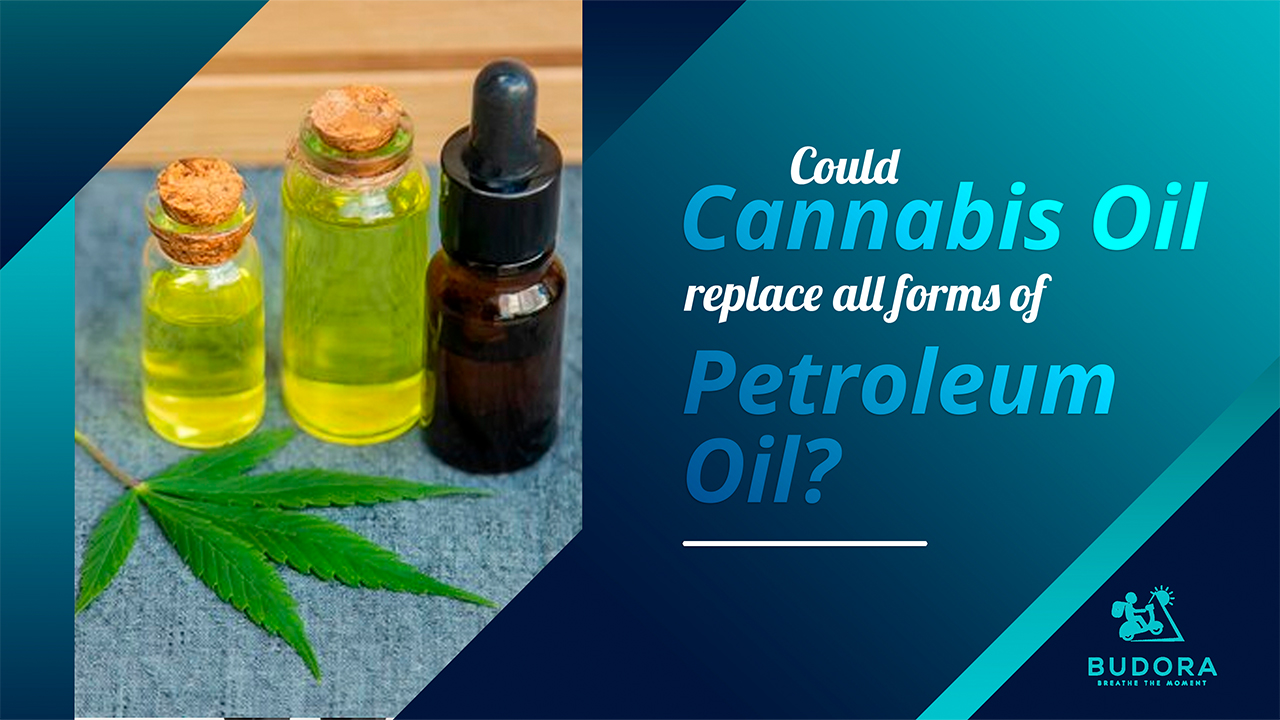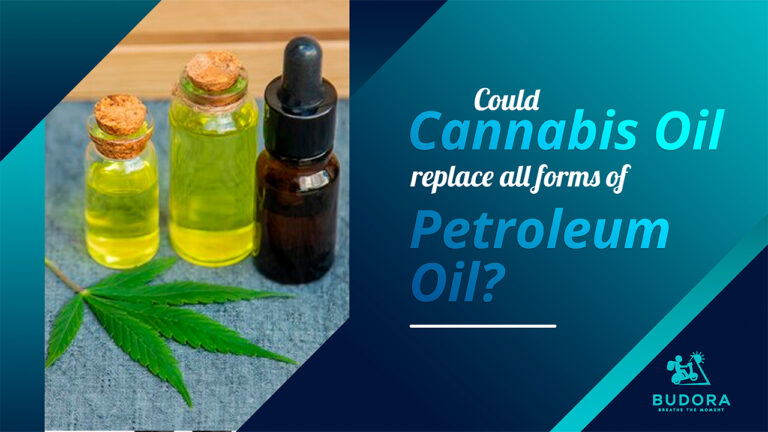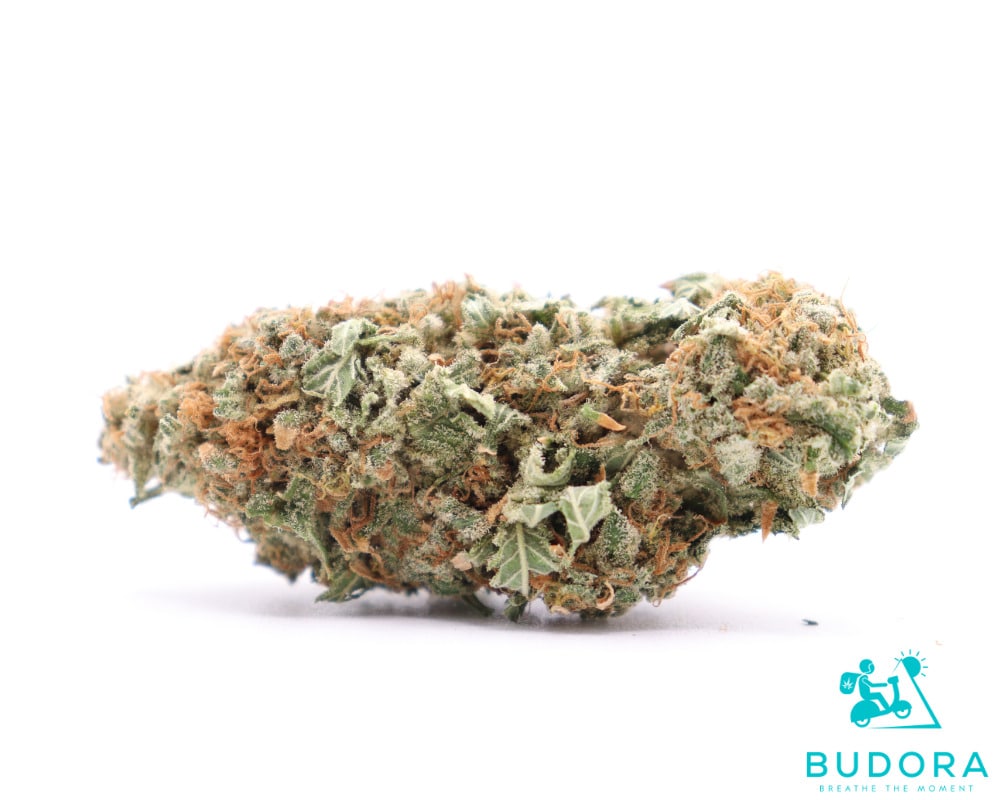

Can Cannabis Oil Replace Petroleum Oil? Exploring Its Potential as a Sustainable Energy Source
- Budora
In recent years, cannabis oil has been getting a lot of attention for its many uses, from health benefits to its potential in various industries. But can it replace petroleum as a primary source of energy? While it might sound like a futuristic idea, this question is becoming more relevant as we look for sustainable alternatives to fossil fuels. In this blog, we’ll dive into whether cannabis oil could replace petroleum, and why it might not be as straightforward as it sounds.
Key Highlights
- Cannabis oil and petroleum oil have vastly different chemical compositions.
- Cannabis oil is a more sustainable option for various industries, including plastics and cosmetics.
- Despite the potential, cannabis oil is still costly to produce compared to traditional fossil fuels.
What is Cannabis Oil?
Cannabis oil is made from the cannabis plant, mainly from its flowers and leaves. The oil is extracted carefully using solvents like butane or hexane to separate the active compounds (such as CBD and THC) from the plant. While this process works well, it can be expensive and requires special equipment. Cannabis oil is available in different forms, like tinctures, capsules, and drops, and is commonly used for wellness and medicinal purposes. Unlike petroleum oil, which is a fossil fuel found deep underground, cannabis oil is a renewable resource. It’s sourced from plants grown sustainably, making it a more eco-friendly option.
Cannabis Oil vs. Petroleum: A Chemical Comparison
Although both cannabis oil and petroleum oil are organic compounds made up of carbon atoms, they have very different chemical structures and uses:
- Cannabis Oil: This oil contains cannabinoids like CBD and THC, which are natural compounds that interact with the body’s endocannabinoid system. These compounds usually in CBD oil offer therapeutic benefits, such as pain relief and relaxation.
- Petroleum Oil: Made mostly of hydrocarbons, petroleum is refined into fuels like gasoline and diesel. It is mainly used for energy production, transportation, and in industries that make chemicals and plastics.
While both oils contain carbon, their chemical properties are very different. This means cannabis oil can’t directly replace petroleum in areas like fuel for cars or other traditional energy sources.
The Potential of Cannabis Oil as a Biofuel
Cannabis oil shows potential as an alternative to petroleum, especially when it comes to biofuels. The cannabis sativa plant, especially hemp, can produce oils that may be used for biofuels, although it’s not the only crop that can do this.
There are reasons why cannabis oil can be a good Biofuel:
- Sustainability: Unlike fossil fuels, cannabis-based biofuels are renewable, biodegradable, and have a smaller carbon footprint, making them better for the environment.
- Versatility: Cannabis oil isn’t just for fuel. It can also be used in a wide range of industries, including making plastics, cosmetics, and even cleaning products.
- Environmental Benefits: Using cannabis oil as a biofuel could help reduce our reliance on petroleum, offering a cleaner, more sustainable energy option.
However, the main challenge is the cost. Extracting high-quality cannabis oil is expensive, and producing enough oil from the plant material to make it a viable energy source takes a lot of biomass. But at Budora, you can find high-quality and less expensive cannabis oil that can be used for wellness purposes and many others.
Challenges to Replacing Petroleum with Cannabis Oil
While cannabis oil holds promise as an alternative to petroleum, several challenges make it difficult to fully replace petroleum oil:
High Costs
Extracting cannabis oil is expensive and requires special processes and resources, making it costly to produce for large-scale energy use.
Limited Supply
Cannabis oil is not produced in large enough quantities yet to compete with petroleum, as the industry is still developing.
Energy Efficiency
While cannabis oil could work as a biofuel, it doesn’t have the same energy power as petroleum, and other biofuels like biodiesel are more affordable and available.
Legal Challenges
The legality of cannabis oil differs by region, and in many places, it’s still regulated or illegal, making it hard to use on a large scale.
These obstacles make it clear that while cannabis oil could be part of the solution, it’s not yet ready to replace petroleum on a large scale. As the cannabis industry keeps growing and changing, Budora is always ahead of the curve, offering high-quality cannabis oil that supports wellness and could help drive sustainable energy solutions in the future.

Can Cannabis Oil Replace Petroleum in Other Industries?
While cannabis oil may not be ready to replace petroleum as a primary energy source, it has a lot of potential in other industries. Here are a few exciting ways cannabis oil can be used:
- Plastics and Bioplastics: Cannabis oil can be turned into biodegradable plastics, which are much better for the environment than traditional petroleum-based plastics.
- Cosmetics: CBD oil, a type of cannabis oil, is commonly used in skincare products because of its soothing and anti-inflammatory properties, making it great for calming irritated skin.
- Chemical Manufacturing: Cannabis oil can also be used to make a variety of chemicals, including cleaning products and solvents, offering a more sustainable alternative to petroleum-based options.
These uses show cannabis oil could play a big role in creating more eco-friendly materials and products. As the cannabis industry continues to grow, so does the potential of cannabis oil. At Budora, we offer cannabis products that contribute to a cleaner and more sustainable future.
The Future of Cannabis Oil as an Energy Source
While cannabis oil isn’t likely to replace petroleum as a global energy source anytime soon, it holds a lot of promise for a more sustainable future. Ongoing research and development in cannabis biofuels and other industrial uses are helping to make the production process more cost-effective and efficient over time. Governments and industries around the world are exploring different renewable energy options, and cannabis oil could become an important part of the solution to reduce our dependence on fossil fuels. As technology improves, we may see cannabis oil play a bigger role in creating a cleaner, more sustainable energy future. Budora feels proud to support sustainability by offering cannabis products that improve wellness and the eco-conscious world.
Conclusion
Cannabis oil may not replace all types of petroleum, but it’s a more sustainable choice for things like biofuels, plastics, and cosmetics. With its renewable nature and smaller carbon footprint, it’s a promising option for the future of energy. However, the high cost of production and limited supply need to be worked out before it can go mainstream. As the world searches for alternatives to fossil fuels, cannabis oil could play an important role in making energy more sustainable. In the end, the future of energy will likely include a mix of renewable sources, with cannabis oil being one of the key players.
FAQ’s
What does cannabis oil do for a person?
Cannabis oil, particularly CBD oil, is a popular natural remedy for various ailments. It offers benefits such as pain relief and relaxation without causing any mind-altering effects. CBD oil is made by extracting cannabidiol from the cannabis plant and diluting it with a carrier oil like coconut or hemp seed oil.
Is cannabis oil the same as CBD?
Cannabis oil and CBD oil both come from the cannabis sativa plant, but they are produced differently and have distinct effects. CBD oil contains no THC, making it legal in many places, while cannabis oil may contain THC and is subject to different regulations.
What is CBD oil good for?
CBD may help reduce anxiety, alleviate pain, improve sleep, and support mental health. However, there is limited research on its safety and effectiveness for these uses, and more studies are needed to determine the right dosage.
What does pure cannabis oil do?
Pure CBD or CBD isolate contains no THC. It may help reduce anxiety and improve sleep, but it can be less effective compared to broad- or full-spectrum CBD.
THC can also stimulate appetite, while CBD may reduce inflammation. The effects vary based on the oil’s composition and dosage. Always consult a healthcare provider for personalized guidance.
Where can I buy cannabis oil in Canada?
You can buy cannabis oil from authorized physical stores or online retailers approved by Health Canada. For fast delivery, Budora offers a wide range of cannabis oil products with same-day delivery in Vancouver. Shop online at Budora for convenience and quick service, ensuring you get high-quality cannabis oil delivered to your door.
Like this article?
Budora
OTHER ARTICLES YOU MAY LIKE



